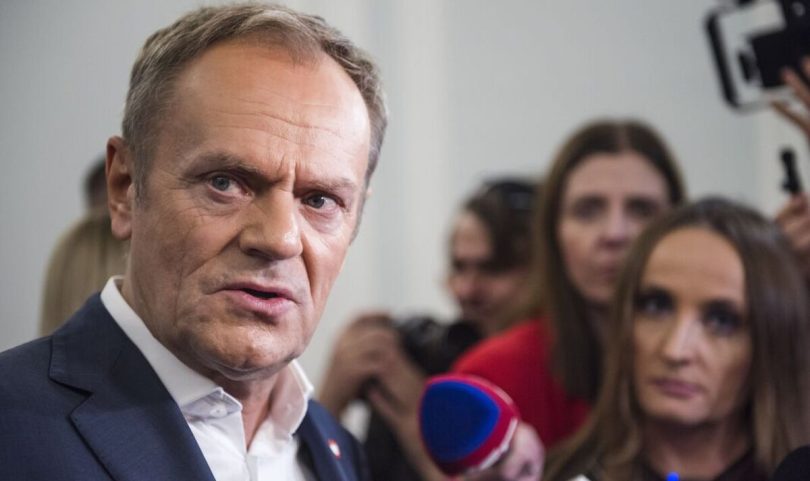Donald Tusk, the arch-Brexit critic who famously needled Theresa May at the height of tense negotiations between the Britain and the UK, is set for a sensational return to the political fray as Poland’s Prime Minister. Mr Tusk, the former President of the European Council, is almost certain to become the country’s next leader, with the country’s Parliament, the Sejm, likely to approve a coalition government which holds a majority of seats in the legislature.
Mateusz Morawiecki, the country’s current Prime Minister, has been trying desperately to put together an administration which can win a vote of confidence in the Sejm. However, tomorrow marks the deadline set by Andrzej Duda, the country’s President and head of state, for him to do so.
Mr Morawiecki’s right-wing Law and Justice Party suffered a major setback in October’s general election, losing 41 seats and hence its overall majority – even though it remains the biggest single party, with 235 members. The 55-year-old yesterday made it clear he had not given up hope of clinging on to power, posting on social media: “The Minister of Finance has just signed the 0 percent VAT regulation on food at my request. This saves money on shopping for millions of Polish families. This is what effective and ambitious policy looks like.”
Nevertheless, Mr Tusk offered a clear indication that he expects to replace Mr Morawiecki in a post on X, previously Twitter, on Tuesday in which he said: “We have survived eight years, we will survive eight days. Many thanks for your perseverance and patience.”
Mr Tusk became a familiar face during the protracted negotiations which followed the UK’s decision to quit the block in 2016. Perhaps most famously, he tweeted a picture of him offering then-UK PM Ms May a cake, commenting: “Sorry, no cherries.” His remark was likely a reference to the idea that Britain could pick and choose which EU rules to abide by.
Mr Tusk’s first task is likely to be resolving a dispute which has led to a blockade by Polish truck drivers at the country’s border with Ukraine. The protesters claim their livelihoods are at stake after the European Union relaxed some transport rules and Ukrainian truckers undercut their business.
Speaking on Friday, Mr Tusk criticised the outgoing government’s “inaction,” offering hope to businesses hurt by the blockade but also to the protesters, as well as emphasising that Ukraine represented “a strategic point” for his county. He added: “We will look for solutions that should satisfy Polish transporters, but we will not tolerate any events that threaten Polish security. Who inspired or initiated them?”
Despite Poland and other nearby countries being some of Ukraine’s biggest supporters in the war, resentment has built from truckers and farmers who are losing business to lower-cost Ukrainian goods and services flowing into the world’s biggest trading bloc. It underscores the challenges of integrating Ukraine into the EU if approved.
Now, the commercial clash is spilling over to the battlefield, Ukrainian charities have warned. Ivan Poberzhniak, is the head of procurement and logistics for Come Back Alive, Ukraine’s largest charitable organisation providing the military with equipment.
Roughly 200 pickup trucks needed to transport ammunition and evacuate the wounded from the front line are blocked at the border because “deliveries have practically stopped,” he warned. Pickup trucks are easy targets for Russia, so it impossible to deliver enough of them even normally, Mr Poberzhniak warned.
When drivers show documents to the Polish truckers saying the vehicles are for Ukraine‘s military, “it does not have a significant impact on the protesters”. The EU has pressed Warsaw to find a way to end the blockade but stood by its deal with Kyiv.
It was “beneficial to the European market, to Ukraine and to Moldova, » said Adina Valean, EU transport commissioner who also threatened sanctions against Poland Ukrainian officials say the truckers’ protest adds more stress to their economy and only serves Russia’s interests.
Ukrainian exports have dropped by 40 percent through the four blocked border crossings, and the state budget has lost some 9.3 billion hryvnias (£200 million) due to the shortfall in customs payments, said Danylo Hetmantsev, head of the finance and tax committee in Ukraine‘s parliament.
Speaking on state television last week, he said: “Undoubtedly, this is a powerful blow to our economy and our exports.”
Source link








